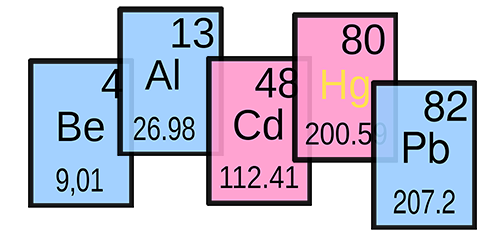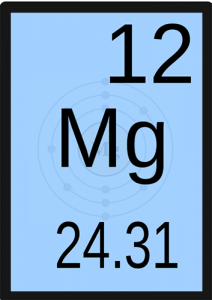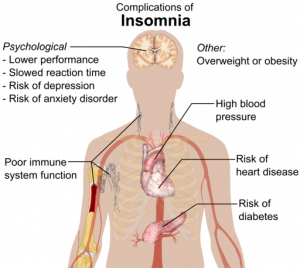Part 4 of 4

Parkinson’s disease prognosis
This is People and Parkinson’s – Part 4 and I will be going through the prognosis of this disease and what the future holds for the sufferers. Click here if you missed Part 1 and here for Part 2. and here for Part 3.
According to research results, indications are that with ample Magnesium (Mg), the brain will be protected from the damaging effects of toxic metals and pesticides. Metals such as aluminium, mercury and lead are undesirable in the brain and will cause damage and cell death. If Mg is low, unwanted metals gain entry into the brain cells. Metals will gain access to the brain much more easily if there is not enough Mg to protect it. Research indicates that this can herald the start of Parkinson’s and Alzheimer’s. It’s interesting to note that with the later stages of PD, dementia is expected. It is also common to misdiagnose dementia for alzeimer’s and visa versa.

In a test, primates were fed a diet low in Mg and Calcium (Ca) but high in aluminium. They soon became sick and apathetic and lost weight. Upon examination of their spinal cords, they showed a swelling of the anterior motor cells and deposits of Ca and aluminium within those cells.(2) As mentioned before, without Mg to keep Ca in check and dissolved, it will roam to parts of the body where it shouldn’t be and calcify. The fact that the diet was low in Ca, indicates that it was pulled in from other parts of the body as there was not enough Mg to keep it controlled
Areas where the soil is high in aluminium but low in Ca and Mg will show an incidence of higher levels of neurological conditions. Victims of the diseases show high levels of aluminium in the neurons along with low levels of Mg.
It was found that on the island of Guam, areas that have the lowest levels of Ca and Mg in the soil, have a high prevalence for neurological diseases. The lethal effects of aluminium on the neurons can be protected with ample supplies of Mg. Mg is absolutely vital for our health for so many bodily functions. It has come with us through our evolution and is a critical factor for all of life, including plants and animals alike.
What about Calcium?
I want to stress again that it is normal for our Calcium levels to be high in comparison to Mg. This in itself constitutes a Mg deficiency. Calcium is being consumed like candy because the public have been misinformed. It is used by food manufacturers to fortify our foods. People want to see “fortified with calcium for strong bones and teeth”. That’s fine as long as the Mg is up there in similar amounts. Optimally, the Ca to Mg ratio should be 1:1. This is really hard to achieve naturally with the abundance of Ca in our diet. Ca has become the ‘star’ of the minerals. All parents want their children to have plenty of Ca. All elderly patients are advised to take plenty of Ca, especially to avoid fratures; it will do the exact opposite! Everyone is worried that they don’t have enough Ca. Nobody seems worried by the lack of Mg. This is a serious error of judgment for everyone.
Why aren’t PD sufferers advised about Magnesium?
This an obvious question and one which I’m asked time and again. It is a fact that medical education does not often include teaching the benefits of vitamins and minerals. Doctors are taught about how to care for sick people and which drugs can be used to control their sickness. They are not taught about wellness and how to keep their patients as healthy as their genes will allow. Unfortunately, much of the medical profession is under the control of Big Pharma. These are large, powerful companies that control much of the drug distribution and pressure is put upon the medical professionals to use the drugs that Big Pharma are advocating. After all, they have invested much funding to produce these drugs. They need to get a return for their investments. They certainly will not take too kindly if a natural mineral was prescribed for a patient instead of their wonder drug. Side effects are often numerous and that goes for Parkinson’s drugs as well. Trouble is, they often produce more symptoms than the patient had in the first place!
 A prime example as to where Big Pharma’s interests lie is when HIV was prevalent in Africa and vaccines were required to try and control this pandemic. The pharmaceutical companies in control of the vaccines, would not supply them to Africa because the country was unable to pay the price.
A prime example as to where Big Pharma’s interests lie is when HIV was prevalent in Africa and vaccines were required to try and control this pandemic. The pharmaceutical companies in control of the vaccines, would not supply them to Africa because the country was unable to pay the price.
The following snippet was found in the The Guardian dated February 2013
“Millions of people in Africa and elswhere were cynically allowed to die of aids while western governments and drug companies blocked access to low cost medication.
84% of worldwide funding for drug discovery research comes from government and public sources, against just 12% from the Pharma companies themselves. On average Big Pharma spends 19x more on marketing than they do on basic research.
Drug companies are working tooth and nail to cut off supplies of lower cost generic drugs originating in countries such as India, Brazil and Thailand, to make sure they don’t miss out on a single customer who could possibly pay their sky high prices.”
Do your own research, after all it’s your body!
I found the following comments on a Parkinson’s UK website:
“After a bad period of tremor’s, I decided to try magnesium after looking up the advantages on the web. I have been taking it for a month now, 200mg a day and my tremor is virtually gone. I still get it if I get really tense but this is acceptable.”
This person has found an answer to his tremors but forgets to up his dose when things in his life get stressful. Stress will deplete your reserves of Mg quicker than anything and stressful days need higher doses of Mg to keep it at optimum levels.
And here’s a newly diagnosed sufferer asking for help:
“Hi all, I am newly diagnosed (a week ago) and apart from some days of extreme tiredness, I’m ok with the ReQuip starter pack pills. My main issue is the constipation and I’m wondering if anyone has/is using anything that alleviates it please? Tony from Cornwall”
and the reply:
“Hi Tony!
My non-PD hubby had constipation after surgery, and the doc recommended he drink a bottle of magnesium citrate, which worked”.
One of the symptoms of Mg deficiency is digestive problems and constipation is common. Once Mg is taken on a daily basis, constipation problems will disappear. This upsetting condition is common amongst PD sufferers, so why was this patient not informed about this?
Don’t forget, Mg is a natural mineral that the body needs at optimum levels to keep you healthy. Depletion of Mg will cause problems with your health and can actually incite serious life threatening diseases. The only contra-indications for Magnesium are:
keep you healthy. Depletion of Mg will cause problems with your health and can actually incite serious life threatening diseases. The only contra-indications for Magnesium are:
- If you have kidney failure: The failed kidneys would not be able to clear magnesium or anything else for that matter.
- If you have a bowel obstruction: The route of elimination would be blocked for all oral intake.
- If you have Bradycardia: A normal heart rate is considered to be 60-100 bpm. Younger and/or fit people like athletes, often have a lower than 60 heart rate which is a good indication of their fitness. If you have symptoms of Bradycardia, ie. weakness, fatigue, fainting, dizziness and your heart rate is very slow then medical advice should be sought.
- If you have Myasthenia gravis: Intravenous Mg could collapse the respiratory muscles. (IV Mg is only administered by a medical practitioner).
As long as you do not suffer from any of the above 4 contra-indictions, Mg is extremely safe and an overdose will only cause loose stools which is a way of releasing excess Mg. It’s also excreted through the urine. Even the non-laxative supplement ie. Mg Chloride solution, will cause a laxative effect if taken to excess.
Magnesium deficiency versus Parkinson’s symptoms
I list below common conditions of Mg deficiency in alphabetical order. Although there are more symptoms of Mg deficiency than listed below, these are also symptoms of Parkinson’s Disease! I don’t know about you, but I think this is a bit of a coincidence! Would it not suggest to you that if you were afflicted with Parkinson’s, supplementing with Mg to ensure your body was completely replete, could actually reduce your symptoms? Even if you were sceptical, knowing that Mg is completely safe to take, would it be worth trying it just to see if you notice a difference in your symptoms? I think I would prefer to try a natural solution first before going onto prescription drugs wouldn’t you?
- Anxiety and Depression

Depression and anxiety - Apathy
- Arrhythmia of the heart
- Concentration difficulties
- Confusion
- Constipation
- Depression
- Dizziness
- Gagging or Choking
- Headaches
- Impotence
- Insomnia

- Memory impairment
- Muscle cramps
- Muscle weakness
- Osteoporosis
- Panic attacks
- Rapid pulse
- Stiffness
- Tiredness
- Tremor of the hands
- Twitching or tics
- Urinating often
- Weakness
Taking a Mg supplement is no different to consuming Mg within your diet. Many foods are high in Mg although it must be remembered that because of farming practices in this modern age, Mg is much depleted in the soil and we gain much less from our food than we did a century ago. It is recognised that the majority of the population is Mg deficient to some degree and a large percentage of those are seriously deficient. So much so that our health is at risk, not only to neurological diseases but also from heart disease, stroke and hypertension. You can also include diabetes, atherosclerosis, fibromyalgia, migraine…
Mg is vital in protecting the body from the lethal effects of aluminium and other toxic metals and also pesticides which are another link to Parkinson’s (2). A naturally occuring antioxidant known an Glutathione is found in all the cells of the body including neurons. This antioxidant helps to detoxify the body of certain chemicals. Cells grown in a Mg deficient medium, produced lower glutathione levels. Introduction of free radicals to this low Mg culture, caused the glutathione to rapidly diminish, making the cells susceptible to free radical damage. Dr Russell Blaylock relates that a fall in glutathione within the substantia nigra appears to be one of the earliest findings in Parkinson’s disease (3).
Knowing the evidence about how destruction of nerve cells in the brain can occur, surely it’s worth supplementing with Mg. After all, what have you got to lose and how much could you gain. You won’t know until you take your health into your own hands.
 If you have first hand knowledge of signs and symptoms of Parkinson’s, please comment below. We want to hear from you, it could help other sufferers. Any question you have I will do my best to answer. Ches Power
If you have first hand knowledge of signs and symptoms of Parkinson’s, please comment below. We want to hear from you, it could help other sufferers. Any question you have I will do my best to answer. Ches Power
- Durlach J. Diverse applications of magnesium therapy, in Handbook of Metal-Ligand Interactions in Biological Fluids – Bioinorganic Medicine, vol. 2, Marcel Dekker, New York, 1995
- Nelson L, “Pestacides and Parkinson’s Disease,” Amercian Academy of Neurology 52nd Annual Meeting, San Diego, CA, April 29-May6, 2000
- Blaylock RL, Excitotoxins: The Taste That Kills, Health Press, Sante Fe, NM, 1997
Spread the word!

This is my first time reading something about Parkinson’s. Great to see it here. Cool website just fit with the theme and topic. Very informative. and the links to WA are just right on the spot. Nice. This is what I wanted to do with mine as well. I want to have the right images in every paragraph. Keep inspiring us. See ya at the top ^_^
Hi there Russel and thanks for reading the post. I’m gratified that you found it informative and that you like the website. I shall do my best to keep information going out to the public about these important issues. Thanks for the encouragement, it’s really appreciated. Ches Power
It really does need to get out there about magnesium because as you say it’s seriously overlooked. Manufacturers have a lot to answer for with their false advertising!
How sad it is that our dear doctors spend so much time peddling drugs instead of natural substances. I know from a time aspect it is an awful lot for them to do because it takes all their time to keep up with the drugs info.
I have a magnesium oil I spray behind my knees. It’s very good.
Great info and I encourage you to continue sharing. Thank you!
Hi there Marilyn and thanks very much for reading the somewhat long post. Yes, you’re right, you can’t really blame the doctors, they have so much on their hands but I wish more of them would stand up for naturopathy and not think it as being some sort of ‘pseudo medication’. As for your magnesium spray, it is a great idea as the molecule used in the sprays (usually Mg Chloride) is small enough to get through the skin and into the blood stream. This is a great way of topping up your Mg intake. It would be difficult to maintain a dosage of 300-400mg per day with just a topical Mg though. See my page on supplements for more information. Good luck and good health always. Ches Power
I’ve read more health articles lately more than I usually do. Seems that magnesium has lots of very helpful qualities. I never thought of Parkinson’s disease leading to dementia. I guess anything that breaks down the normal operation of the nervous system has the potential to cause nervous system damage elsewhere.
The field of biochemistry has come a long way. It’s great to read about these chemicals and the effect they have on the human body.
It is interesting to see what happens when people or other entities are driven by money. Certainly there are smart people in the pharmaceutical industry that understand the harm or lack of efficacy that some drugs have. When a research study indicates that something other than what is currently popular in the industry may do a better job, it really is too bad that some will ignore this in the interest of making a profit.
Thanks for writing this article. I’ve been enlightened and educated.
Hi bioelectrobot and many thanks for reading Part 4 of my article. Yes, it’s really frustrating how natural remedies are kept close to the chest, even with medics. I feel sure they are under duress to dish out the latest pharmaceutical miracle that touted to them.
As far as research goes, I find I have to be really careful and look at the contributors and where they work. Pound to a penny they have an axe to grind and all too often the glowing report of a particular drug has been given by participants of that research being connected to the manufacturer. For nutrients and natural substances that we have in our body, the research is thin on the ground. No money in it I suppose. Those brave doctors who lean towards the natural solution are often put into a catagory of pseudo medics dealing in quackery. The only ones that suffer are the poor patients who are suffering enough already. With Big Pharma friends like that, who needs enemies!
Ches Power
Thanks for the site! It is something I have been trying to search for awhile but with no luck in terms of finding it in once piece. My friend recommended me magnesium for health as she claims, it would zing! up my days. I kinda feel it but never sure how much I should intake and who it actually does to my body. Also for old people with parkinsons…guess we cannot just give them anything! They wont be able to tell us. Cheers!
Hi and thanks for reading the post. The recommended daily allowance (RDA) is between 300-400mg of elemental magnesium (Mg). This does depend on your gender and weight. The largest amount of energy is needed by your muscles which of course includes your heart. Mg is necessary to produce that energy through Mg-ATP (adenosine triphosphate). ATP are packets of energy which reside in the many mitochondria in your cells. Men have a larger musculature than women so need a little more Mg to keep their muscles energised.
Ches Power
Hi Chessie
I have to tell you that I really enjoyed reading your article.
I am a pharmacist by profession.I personally believe in taking the natural route over the medicinal route. The body is amazing and has the intrinsic ability of healing itself. It’s just needs the right nutrients, foods and in the case of your article, the correct minerals.
The benefits of Mg should not be underestimated and I strongly advise people to read your article and take to heart what is said.
Yes, it depends of the severity or stage at which someone’s PD is at, but there is no telling the ‘difference’ that Mg will offer unless it is tried.
Keep up the good work!
Regards
Roopesh
Thank you so much Roopesh for reading the article. I just wish more people like yourself, who have a pharmacological and/or medical background would follow/understand the benefits of natural over drugs. There is a place for prescription drugs but it must be after all naturopathic avenues have been exhausted so the body has the best chance of a natural recovery. Also prevention rather than control by drugs, must be the best way forward for the healthiest life your genes will allow. Good health always to you. Ches Power